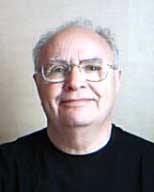Michel Menou
 Brief Career Biography:
Brief Career Biography:
Having graduated in Public administration from the Institut d’ Etudes Politiques, University of Paris (better known as SciencesPo), thus supposedly being fit for any function, I had a quick experience in a Bank. I left promptly upon a friend’s advice to work at the design of an international information network in housing, urban and regional planning, a United Nations project supported by France. After 4 years as the implementation was slow and not exactly as planned, I started consulting in what was then known as “scientific and technical information systems”, working mostly with international cooperation agencies, especially UNESCO and FAO, and concentrating on national policies and plans on the one hand, education and training of information professionals and users on the other hand. 15 years later I went to FAO’s headquarters in Rome, Italy, as officer in charge of field projects supporting national agricultural information systems. I had hoped this would allow for more efficiency than consulting in helping the projects to achieve their goals. I was wrong and quit. I then renew with consulting in parallel with academic positions first in France and later on in England. Focus of my work since 1990 switched toward national policies related to information and communication technologies and knowledge management, with special emphasis on the possible contribution of ICT application to the development of “underprivileged” communities – that is the vast majority of human beings. On the go I did postgraduate and doctoral studies in information science. From the very beginning I was active in professional and scholarly societies, especially in relation to their international programs. Over these 40 plus years I had the chance to work in some 80 countries in Africa, the Americas, Europe and a few in Asia.
Benefits of ASIS&T:
When I entered the information science (and technology) field ASIS was its lighthouse. The journal, Bulletin and the Annual Review were must read, the annual and mid-year meetings must go. While specialist societies and regular events have since proliferated, I suspect this is still the case for both a holistic and cutting-edge perspective. I can hardly think of being an information professional without being an ASIS&T member. I was a bit surprised at first that a Frenchman could be welcome in an American society, if at all entitled to join. Indeed international presence in ASIS&T required some time and much efforts from dedicated colleagues to build up to the level it has now reached, which hopefully will continue to expand. Beyond the intellectual challenge and reward, the society proved a unique place not simply to network with the most diverse and gifted breed of information professionals, but more importantly to make friends. The quality of personal relations anyone can establish with fellow ASIS&T members is simply unique.
Advice for New Information Professionals:
This is supposedly the information age, the world is thus yours. Beyond the buzzword, no doubt that the known and yet to be explored venues for deploying the skills acquired in learning and practicing information science (and technology) are endless, exciting and rewarding. Even though one might soon feel to be driven too far away from what is seen as the basic professional practice. As Hemult Arntz, long standing president of FID (International Federation of Information and Documentation), used to say “Hum, some of my students, hum, became Ministers and not the worst”. In order to fully enjoy this profession one should be curious, persevering, flexible, systematic, and multi-lingual because information is international in essence. A solid sense of humor is of course required, but this is true for any endeavor from the very first minute of birth and even before. And of course one should be a member of ASIS&T (assuming it is affordable), as well as other societies as one sees fit. Be pro-active, give more than you take and remember that the only capital is Human.
